Over the last few years I’ve transitioned from owning a boatload of CDs, DVDs and other media to owning almost none at all, keeping only digital copies of everything. Here’s what I’ve learned over the last few years about where digital still falls short.
Generally speaking, I’m all about going all-digital with my media. It’s easier to use, quicker to load, doesn’t require driving to a brick-and-mortar store, doesn’t need shelf space, and doesn’t require a truck to deliver it from one place to another. But digital media has some growing pains, and until we fix some issues, I’m going to miss physical media a little. It’s not about the smell of paper or the thrill of looking through the liner notes on a new LP. It’s about the fact that nobody wants to let me control my digital goods in any way.
Organisation Is Awful With Digital Media
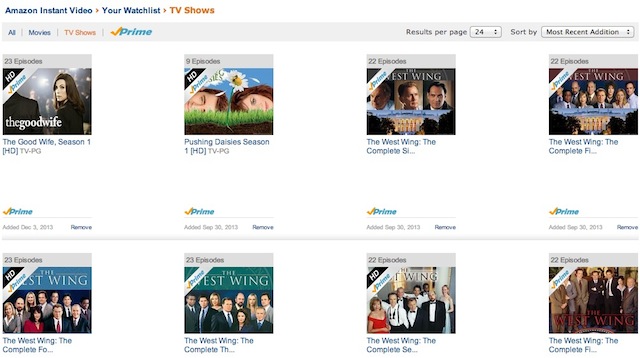
I might be in the minority on this one, but one of my biggest problems with the bulk of digital media is that I can’t organise most of it. I have to search through downloads, deal with an app’s singular organisation method, or cross my fingers that I’ll be able to find something after I download it.
For me, the worst offender is streaming video. My Netflix and Amazon Prime queues are a mess and it’s impossible to actually use it to find a movie to watch. Similar, minor annoyances exist across media. With Steam, once you download a game it’s in your library forever and you can’t really get rid of it. The Xbox 360 hides games beneath three layers of menus. The Kindle keeps nonfiction and fiction on the same shelf. The only way to save an album on Spotify is to “star” it or create a playlist, neither of which work particularly well. Having digital stores automatically organise things alphabetically is nice, but I miss the ability to manually sort my shelves exactly as I wish the way I can with physical media.
There’s No Real Thrill Of Discovery
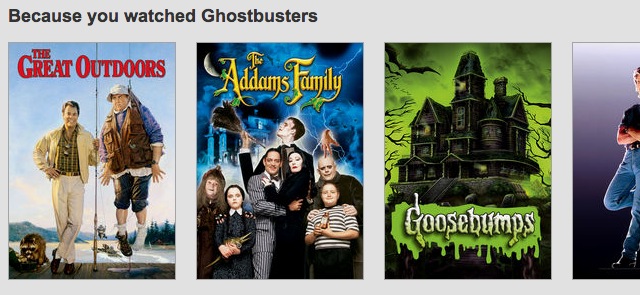
Aimless browsing isn’t really possible in online stores. Even with Amazon’s advanced algorithms telling you what other products you might be interested in, there’s no analogue for walking into a book store on a Sunday afternoon with a gift card and a couple of hours to waste.
It’s sometimes claimed that the traditional bookstore ruins discovery, but that’s only partially true. I’d argue it’s more about the thrill of discovery. That’s a slightly different thing.
Discovering something previously unknown to you in a store was as simple as walking into a store, looking for something with a cool cover, and then trying that thing out. That might be listening to an album, flipping through a book, or renting some weird old VHS tape at the local video store. Those discoveries felt like your own because they weren’t just about the media — they were about the story that led to the discovery. Telling your friend about how you’d found an album buried in the bargain bin, or a book hidden on the back corner shelf, has bigger impact then saying that some stranger recommended it on Twitter.
That’s not to say there’s anything wrong with the new modes of discovery — there isn’t. In fact, they’re a lot better and smarter. I’m consistently impressed with what Netflix recommends, what Spotify wants me to listen to next, and what books Amazon thinks I’ll enjoy. But none of those things add value to products. If Amazon recommends a book I end up liking, I just continue along with my day. If I find a book completely on my own, hidden in the depths of a store, I feel like that book is mine and mine alone. I found one of my favourite books of all time > misfiled on a shelf at the bookstore, and have since then never seen it anywhere else. That’s just not a story we get with an ebook.
Digital Providers Can Take Away Media On A Whim
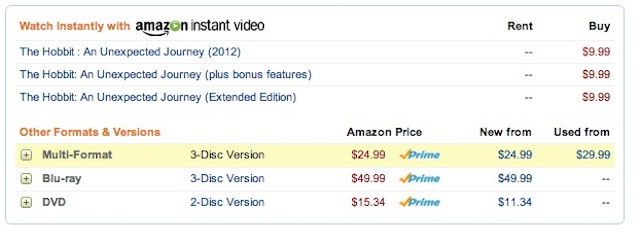
I’m not the type to buy into conspiracy theories about media companies trying to take away ownership of everything, but it’s clear that they control how and when we get access to media. Usually, that’s fine, but every once in a while it really seems to screw with you.
For example, when The Hobbit was originally released, it was easy to rent it from any digital store. You could grab it on your PS3, from Amazon, iTunes, or wherever else. But the other day I decided to watch it again before the new movie came out, only to find that the rental version had been pulled from all digital stores. If I wanted to watch it again, I had to buy it, and I have absolutely no interest in spending that amount of money on that movie.
Now, I’m not entitled enough to think that I should be able to rent any movie I want whenever I want, but considering I’d rented this particular movie before, it was a little frustrating to find that it suddenly wasn’t available.
As we’ve discussed before, you don’t own your digital content, and that means the threat that a digital store might pull content from you is always present. Sure, it’s unlikely that Amazon, iTunes, Google, or whoever else will suddenly decide that you can’t access the stuff you bought, but the possibility is always there. In fact, Amazon pulled a Christmas movie from a customer just last week.
Furthermore, because of DRM, we’re often forced to stick with a single store if we want to download instead of stream. Because of licensing deals, not every store has everything we want. Subsequently, our libraries become fragmented messes, which again means organisation is a pain.
So What’s Next?
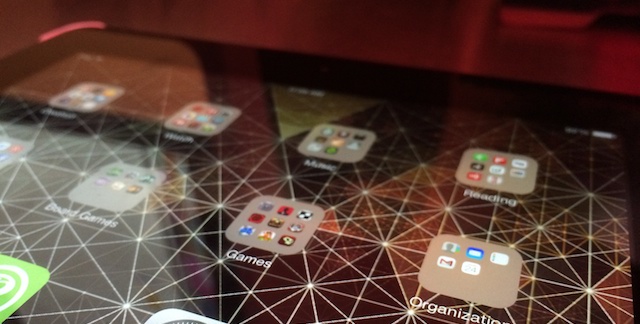
Digital is the future, and that’s something I’m excited about. Now that the foundations are laid for providing the content, it’s time to start working on the core experience of accessing that content. I can download a movie, book, or game from a ton of different stores, but I wouldn’t call any of those experiences pleasant. At least, not pleasant in the way I used to enjoy wasting away an afternoon in the local record shop.
The problems aren’t so much technical as they are experiential. I’m sick of hacking my way to a decent experience. Give me an app that works and allows me to do a few basic things. Let me organise my content however I like. Give me a shopping experience where I come across similar products in a way that isn’t tacky. Stop taking content away from me for licensing reasons. Find a way to remind me that I own things (OK, that last one is my fault).
I realise a lot of this is down to me. I need to to update my behaviour to make use of digital media. I can make playlists of all the new albums I have to remind myself to listen, I can use Amazon’s junky, but workable digital shelves feature to at least bring a semblance of organisation to my ebooks, and I can stop buying so many damn games on sale that I forget I own them.
Trust me, I don’t want to own physical media anymore. If I never have to go to the store to buy a specialty shelf for media I’ll be happy. Just give me a little control and at least a semblance of ownership.
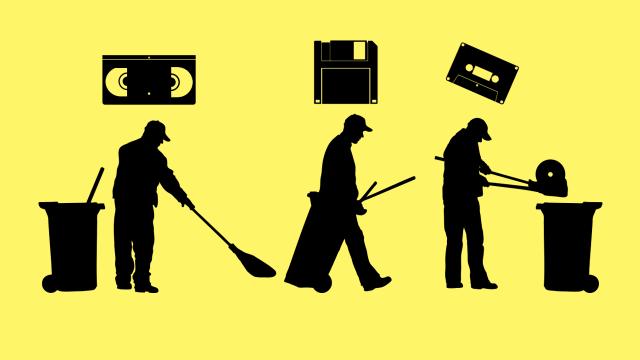
Comments
3 responses to “Where Digital Fails: The Pitfalls Of Ditching Your Physical Media”
I did like the part on there is no thrill of discovery. I’ve seen so many good movies or listened to great album’s in the past that have been forgotten about then to be browsing in the bargain bin at what ever store and “hey I remember this, it was awesome”
For Discovery I have had luck with Pandora – your own radio channels will throw somewhat “random” stuff at your ears. I had a big problem with finding any new contemporary music I liked. Stuck with old school but have found some good new artists that way . 🙂 Hppy Nu Yr 2 all
Rather than use proprietary cloud storage, why not download the digital media to storage that you control. And simply don’t use services that lock media to either their walled garden or DRM.
I know this reduces the range available but at least it puts the end-user back in charge. Many music stores allow downloading of entire albums (Beatport, Google, etc) without DRM after which it’s not too hard to make a couple of backups, maybe even including to physical media.
Having the media locally also allows media players to do the sort-and-sieve for you and present the library however you like. If you want to take the music with you, there are plenty of options to run a virtual cloud from home or upload to cloud storage that you have more control over.
I also used to like getting discs, especially limited edition ones, for the extra features and cool sleeve notes. But my collection is starting to get unwieldy and most of it is in boxes or the garage.
yeah this seems to be a very DRM centric perspective… I don’t understand why anyone would opt to live in an itunes-esq universe.
build an XBMC box and throw all your media on it, end of story.
open source all the way… Hollywood is going to have to catch up with the rest of the world.
The other losses are social – meeting people with similar interests in a specialist shop or shelf, or visiting someone’s house and seeing the books on their shelves, or even noting the cover of a book being read on the train. Such encounters can spark an afternoon of conversation or a lifelong friendship, especially between people might be less likely to deliberately search for like minds.